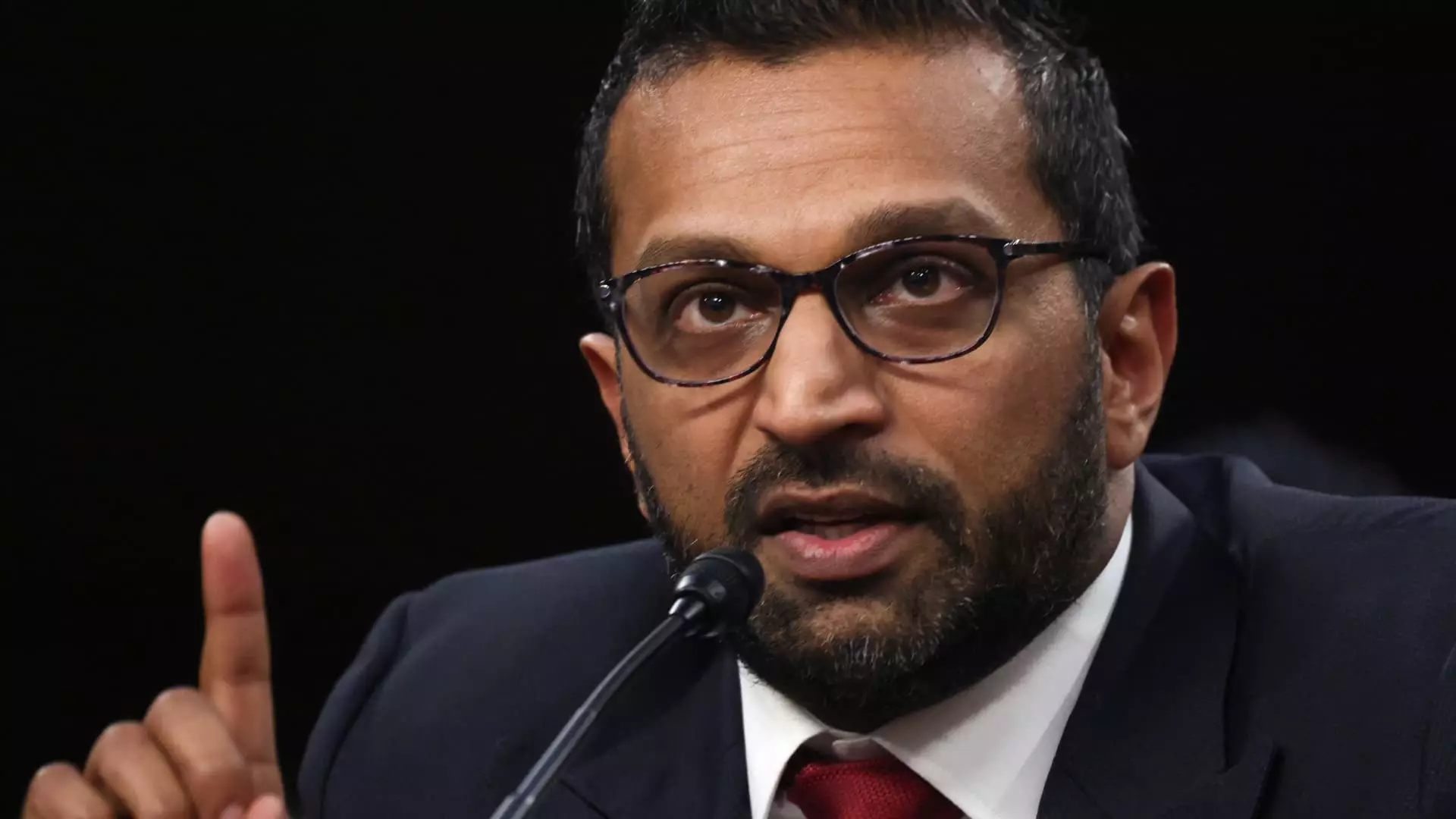The recent appointment of Kash Patel as the FBI Director has stirred considerable discussion within political and law enforcement circles, especially as he is poised to take the helm of the Bureau of Alcohol, Tobacco, Firearms, and Explosives (ATF) as well. This dual role signals a significant shift in the leadership dynamics of two of the largest and most controversial agencies within the Justice Department. The implications of Patel’s expected leadership over the ATF raise pertinent questions about the agency’s future, particularly in light of the longstanding criticism it has received from conservative entities.
Kash Patel officially took his position as FBI Director last Friday, drawing support from Senate Republicans despite extensive concerns voiced by Democratic lawmakers. These worries particularly focused on Patel’s ties to former President Trump and his intention to implement sweeping changes at the FBI. The potential for Patel to lead both the FBI and the ATF presents a unique challenge—one that must grapple with not only operational oversight but also the intense scrutiny that accompanies the regulation of firearms, explosives, and other hazardous materials.
The ATF is pivotal in establishing enforceable regulations surrounding firearms in the U.S., boasting a workforce of approximately 5,500. Its responsibilities encompass a broad scope, from overseeing the licensing of firearms dealers to tracing firearms linked to criminal activity and conducting detailed analyses of shooting incidents. Given its integral role in maintaining public safety, any operational changes or leadership shifts could significantly impact how gun laws are enforced and perceived.
Patel’s impending leadership comes after a tumultuous period for the ATF, exacerbated by recent decisions from Attorney General Pam Bondi, including the dismissal of chief counsel Pamela Hicks. Such choices may further ignite the ongoing debate surrounding gun rights and the agency’s regulatory powers. Bondi openly criticized Hicks for purportedly “targeting gun owners,” highlighting the tension that often exists in the intersection of law enforcement and Second Amendment rights.
Political Context and Reaction
The political atmosphere surrounding Patel’s appointment is complex and fraught with implications. His confirmation has garnered support from gun rights advocates, with organizations such as Gun Owners of America heralding his ascent as a “major victory for gun owners.” Conversely, groups focusing on gun safety, such as the Brady Campaign, raise alarms about Patel’s perceived extremism concerning gun rights. This division reflects broader national sentiments regarding control measures and personal liberties.
The Biden administration’s recent regulatory actions, aimed primarily at enacting stricter laws on ghost guns and advocating for background checks among retailers, are viewed with skepticism in conservative circles. Trump’s directive for the attorney general to scrutinize these measures underscores the ongoing conflict over firearms regulation. With Patel now poised to influence both the FBI and ATF, advocates from both sides of the ideological aisle are keenly interested in how these policies will evolve.
It’s important to contextualize Patel’s role by looking at the historical landscape of leadership at the ATF. Since 2015, the agency has faced challenges in securing permanent directors from both political parties. The last confirmed ATF director was Steve Dettelbach, whose tenure lasted just over a year before his departure in July 2023. The political complexities involved in confirming nominees for this position have consistently hindered the agency’s stability, resulting in a significant leadership vacuum.
Conservatives have persistently called for the agency’s dismantling, arguing that the ATF’s regulatory endeavors are overly intrusive and infringe upon Second Amendment rights. This narrative often intersects with public sentiment, shaping a backdrop of apprehension about any leadership with an agenda that may threaten gun ownership freedoms.
Looking Ahead: The Challenges for Kash Patel
As Patel prepares to assume his role at the ATF, it is clear that he will encounter both immense responsibility and considerable scrutiny. Navigating the agency’s dual mission of enforcing law while respecting citizens’ rights will be a delicate balance. The implications of his leadership decisions will undoubtedly resonate across the nation, influencing future legislative actions and shaping public perception of gun rights and regulation.
Kash Patel’s ascendancy marks a critical juncture for the ATF and the FBI alike. The anticipated overlap in leadership responsibilities invites contemplation about the future trajectory of firearms regulation in America and the potential repercussions for public safety and individual rights. How Patel manages these complexities will undoubtedly be one of the defining elements of his tenure.


Leave a Reply